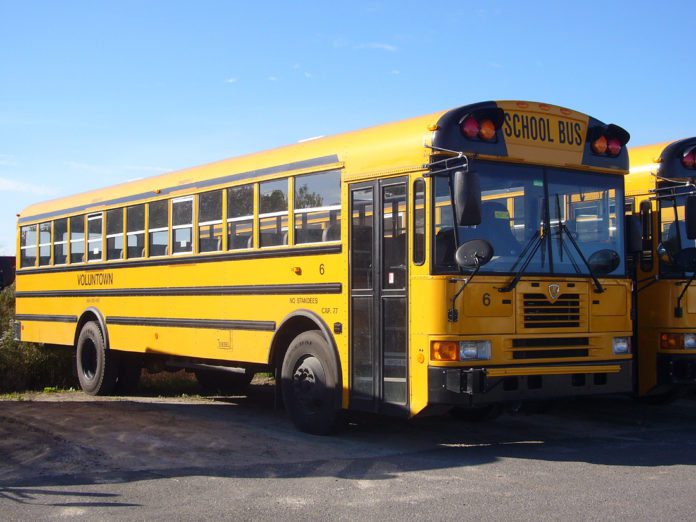BY SHARON MARTIN
In 2005, 85% of the juveniles who had dealings with the juvenile court system were functionally illiterate. According to the National Adult Literacy Survey [NALS], 7 out of 10 prison inmates in the United States read below the fourth grade level.
Those are prisoners. What about our neighbors?
According to NALS, 16% [about one in six] of the adults in the county where I live cannot read a map, figure the cost of purchases on an order form, or fill out an application.
The results are predictable. If you can’t fill out an application, you might have trouble getting a job. NALS agreed, saying that adults “with the ability to perform challenging and complex reading tasks” had an average income more than double those “who lacked basic skills.”
The average income for readers is more than $50,000 a year. Nonreaders average less than $23,000 a year. That’s the average.
How many of these nonreaders, who are often highly intelligent and capable of earning a living based on specialized non-reading skills, earn much more? How many, with no marketable skills at all, earn much less?
There are plenty of people who say this is not our problem. Who feeds the people with no means to feed themselves?
One school of thought says that the fit survive and everyone else is expendable. But too often those with no choices turn to crime. The high cost of crime is our problem. Our tax dollars build prisons and pay guards. We funnel taxpayer money into the pockets of corrections corporations.
It costs more to incarcerate a person than it does to educate them.
We are the government. Our public employees and representatives are charged with taking the money we throw into the kitty and returning necessary services to us. As the citizens paying the bills, we get to decide how that money is invested. It’s not up to our legislators to decide for us; it is up to us to tell them what we want. That’s democracy.
Would you rather pay reading teachers or prison guards? Would you rather see a generation of productive citizens who contribute to our society or would you prefer to spend your money cleaning up the mess that uneducated, unemployable citizens create?
These are questions facing the state Legislature. I suggest you call your representatives and tell them which side you come down on.
– Sharon Martin lives in Oilton, OK and is a regular contributor to The Oklahoma Observer








You are right that it does cost more to incarcerate then to educate! You’re missing the point. Taxes to pay for incarceration the ignorant comes poor people. Profits from privatized prisons goes to rich people. There is no profit in educating through public schools so the result is going to be, get rid of public schools, that increases the number of dumb prisoners and then build more profitable prisons that are paid for by taxing the poor. The rich win again and the poor pay the bills. It’s pretty simple. More dumb people means more profits for rich people. The way things are going we need a bunch of luck!
The problem does not lie in education. Education just takes the blame.
I would like to see a symposium held to discuss the problems with education in Oklahoma. As the audience enters the meeting hall, hand them a brief survey. It will be anonymous and and ask a variety of questions about where they think the problem lies. However, there is one question on the survey which must be asked: How does or did your child do in school? Great? Good? Fair? Poor? I suspect >= 90% of the respondents will answer either great or good.
Why is that? I imagine that if you could fact check the answers on these surveys you would find that the responses to their child’s performance are true. Again, why is that?
Now, let’s talk about who did not show up for the symposium. Let’s talk about those that don’t show up for their child’s parent-teacher conference, those that don’t review their child’s work, those that don’t sign the notes the teacher sends home, those that don’t really try to make sure their kids are at school every day, or at least on time. If you are looking for the root cause of high incarceration and plummeting test scores then look no further. Look to the parents. If the parents don’t care, then the child won’t care either.
I’ve been married to a school teacher for 15 years. Vicariously through her, I’ve met some great parents and kids. However, I’ve also witnessed a change in the parents. There is a problem when a teacher holds parent-teacher conferences for 28 sets of parents and only 10 to 12 show up – year after year. There is a problem when a parent is called about his or her child’s behavior and their response is, “I dropped him off with you. He’s your problem, not mine.”
The politicians in this state notice the test scores. The vociferous attendees of education symposiums notice them, too. They notice the scores, but have no idea why it’s happening. Their answer is that the teachers are terrible and don’t deserve the pay they receive. They decide (contrary to business sense) to cut funding, place more constraints, and add more testing and reporting. Less money means get better, I guess.
It’s ironic that America achieved a level of success in the 20th century that has never been seen before based upon an education system that everyone today says is broken. Broken! We have more creature comforts than ever before and that broken education system made it possible. If you really need to affix blame for plummeting test scores and high incarceration rates then go into the bathroom and look in the mirror.
Change really does start at home.